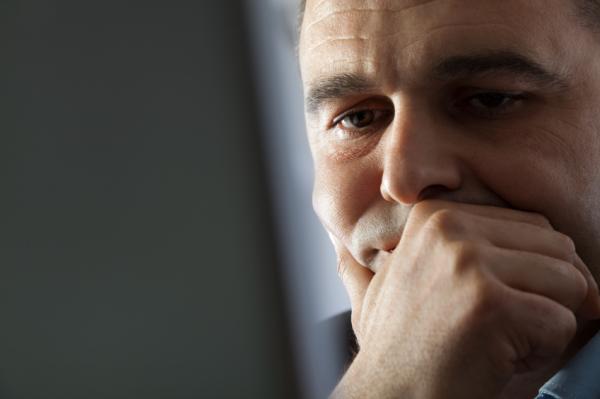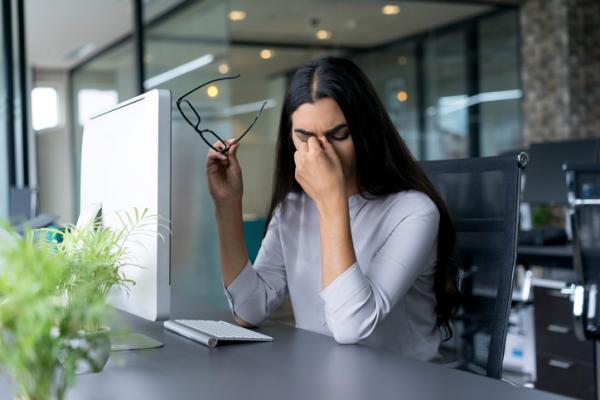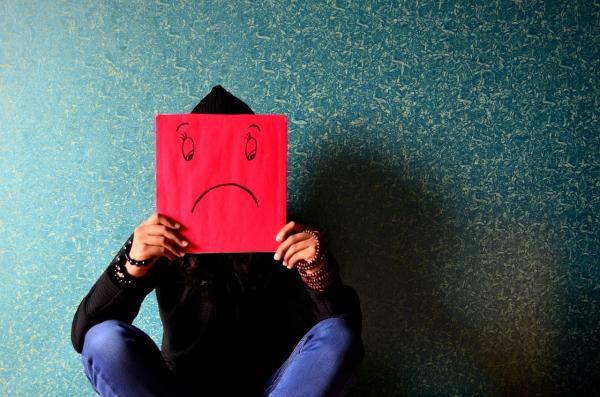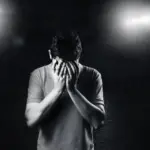
If you are asking yourself this question “How do I know if I have depression or anxiety?” It is probably because you feel that something is not right in your life and that you cannot achieve that emotional well-being that you so desire. It is important to stay informed about these types of conditions since by knowing them in greater depth we can realize if it is really what is happening to us and finally seek the appropriate help to treat them.
That is why in this PsychologyFor article: how to know if I have depression or anxiety we are going to tell you in detail what each of these pathologies consists of and finally give you some advice so that you can know what to do when you have anxiety and depression.
How to know if I suffer from depression or anxiety
Anxiety is the most common mental disorder in the general population, followed by depression, which unfortunately is increasingly increasing. Both types of disorders can appear simultaneously and/or it is also common for one to be the trigger for the other, that is, a person who suffers from anxiety is more likely to begin to have depression due to the degree of dissatisfaction that their problem generates. . Therefore, it is important that once we have identified one of them, we begin to treat it so that we do not have the risk of suffering from the other as well.
In order for you to know if you suffer from any of these disorders, you need to pay attention. attention to the main symptoms that characterize each of them.
Anxiety symptoms
- Experiencing at certain times, sometimes without apparent cause, tachycardia, tightness or pain in the chest (this does not have to be due to any medical condition)
- Excessive sweating when the person is faced with a situation that generates anxiety
- Stomach pain that is sometimes accompanied by nausea and even vomiting.
- Muscular stiffness
- Dizziness
- Concern
- Fear because you constantly have a feeling of danger
Symptoms of depression
- Exhausted
- Feeling of uselessness
- Lack of concentration and difficulty learning a new skill
- Lack of interest in doing activities that were previously pleasurable
- Sleeping problems
- Irritability
- Sensation of emotional emptiness and hopelessness
- Feel sad most of the day

What to do when you have anxiety and depression?
After having informed yourself about the symptoms of anxiety and depression, the first thing you should do is analyze and reflect on the symptoms what you are experiencing right now and determine if you identify more with one or the other. Once you have identified it, it is necessary to go to a professional so that they can offer you the treatment that best suits your specific needs. Below I am going to tell you what the psychological treatment that is most used in therapy to solve this problem consists of.
Psychological treatment for anxiety and depression
Psychotherapy is essential for the cure of both disorders, whether the person has only one of them or both, it will always be necessary to go to a professional to resolve it.
The psychological treatment that will be used in these cases aims to relieve all annoying symptoms who have both disorders and which are preventing the person from leading the life they so desire. First of all, the patient’s situation will be analyzed and an accurate diagnosis of their condition will be made. After having determined the diagnosis, it is explained to the patient, through psychoeducation, how the work will be done according to their particular case, what their diagnosis is and what it consists of, that is, what the causes, symptoms, consequences and the most effective treatment.
Normally, we also work with relaxation techniques, breathing and even meditation. On the other hand, irrational ideas and beliefs that do not allow them to have a better perspective on life are discussed with the patient and they are managed to modify them so that they can think more assertively, objectively and, above all, positively. We work gradually with the patient so that little by little they achieve their personal goals and objectives that they could not carry out due to the disease through physical activation and carrying out pleasant activities, etc. Finally, the patient ends up feeling better because he has achieved a greater balance between what he thinks, what he feels and what he does.

How to cure anxiety and depression
If you are just beginning to experience symptoms of anxiety and/or depression or even if you are already undergoing treatment and would like to reinforce it and help you more, below I present a series of tips that will be very useful to you.
- Although it is difficult to decide to do it and especially to start, it is advisable to exercise. Exercise releases some happiness hormones such as serotonin and dopamine that help you feel much better after having done it.
- Try to do different things and put aside the routine.
- Practice the meditation n.
- Every time you catch yourself thinking negative thoughts, try to modify them and make them more constructive and positive.
- Surround yourself with friends, family and/or people close and significant to you. Invite them home or go for a walk with them, try not to isolate yourself and live together.
- Do activities that you find relaxing and that you enjoy.
- Remember that you are not going to feel this way for the rest of your life. everything has a solution and the sooner you seek help, the better you will feel in less time.
This article is merely informative, at PsychologyFor we do not have the power to make a diagnosis or recommend a treatment. We invite you to go to a psychologist to treat your particular case.
If you want to read more articles similar to How to know if I have depression or anxiety we recommend that you enter our Clinical Psychology category.








